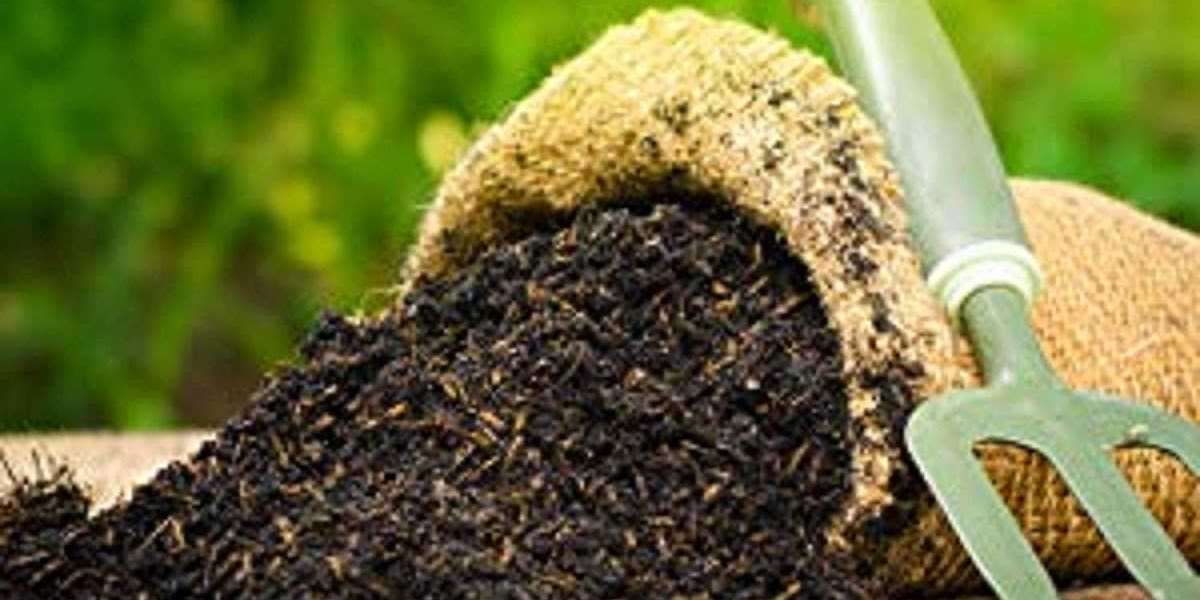Organic Fertilizer: Nature's Way to Enrich the Soil and Improve Crop Yield
Introduction
Organic fertilizers refer to fertilizers derived from animal matter, animal excreta, plant and plant waste matter, seashells, sewage sludge, compost and vermicompost. They improve the physical and chemical properties of soil, enriching it with essential nutrients required for healthy plant growth. Compared to chemical fertilizers, natural fertilizers have slower but longer-lasting effects and help foster a balanced soil ecosystem.
Types of Natural Fertilizers
Some common types of natural fertilizers used worldwide include:
Manure: Farm animal manures like cow dung, poultry manure and pig manure are rich in nitrogen, phosphorus and other micronutrients. They improve soil structure and water retention.
Compost: Produced by controlled decomposition of organic waste, compost is a balanced natural fertilizer and soil conditioner. It contains vital nutrients and promotes beneficial microbial growth in soil.
Vermicompost: Also known as worm compost, it is produced by the digestion of organic matter by earthworms. It has a finer texture and higher concentration of nutrients than compost.
Seaweed Extract: Derived from seaweeds, it is a liquid fertilizer rich in growth-promoting elements like potassium, iron and magnesium. It stimulates plant growth.
Blood Meal: Dried blood powder obtained from slaughterhouses, it is a highly nitrogenous natural fertilizer promoting lush green growth.
Bone Meal: Made from steamed and dried animal bones, it adds phosphorus along with calcium and other minerals to the soil.
Plant-based Fertilizers: Materials like soybean meal, cottonseed meal, peanut hulls etc. add nutrients when plowed back to enrich depleting farmlands.
Benefits of Organic Fertilizers
Some key advantages of using natural fertilizers include:
- Holistic Nourishment: They enrich soil with an array of nutrients in balanced proportions, improving its fertility in a sustainable manner.
- Lasting Effects: Natural fertilizers slowly release nutrients, feeding the soil over a longer duration compared to chemical forms.
- Improved Soil Structure: Additions of organic matter help loosen compact soils and improve their water and nutrient holding capacity.
- Fewer Greenhouse Gases: Since natural fertilizers are derived from recently living biomass, they emit lower levels of greenhouse gases than chemical fertilizers upon decomposition.
- Boosted Soil Life: Natural fertilizers stimulate soil microbial activity and aid proliferation of earthworms and other beneficial organisms.
- Minimal Pollution: Being largely derived from natural wastes, natural fertilizers pose negligible risks of groundwater contamination when used appropriately.
- Disease Suppression: Healthy soil life and balanced nutrition build plant resilience against common fungal and bacterial diseases.
- Fewer Inputs: Organic farming requires fewer purchased inputs and relies more on optimized recycling of available biomass resources.
Disadvantages of Organic Fertilizers
While natural fertilizers confer notable advantages, some potential limitations include:
- Nutrient Variability: The nutrient content of natural fertilizers can vary based on their source and method of production, requiring adjustments in application rates.
- Slow Release of Nutrients: As nutrients are gradually mineralized by soil microbes, organic forms may not immediately satisfy heavy feeders or nitrogen-hungry crops.
- Labor Intensive: Producing quality organic fertilizers on farms demands more labor and management skills compared to chemical alternatives.
- Storage Challenges: Being moisture-laden, some natural fertilizers like manures are difficult to store for long periods without losses from leaching or decomposition.
- Space Requirements: Large-scale production of natural fertilizers within farms requires dedicating land/space for composting yards and livestock rearing.
- Weed Propagation: Manures containing weed seeds if applied during the growing season can lead to outbreaks of troublesome weeds.
Application and Management
For harnessing the fullest benefits of natural fertilizers, they must be judiciously applied based on soil tests and integrated with other sustainable nutrient and soil health management practices. Some guidelines for their effective use include:
- Fall/winter application: During these seasons, natural fertilizers get sufficient time for breakdown before the next cropping season.
- Application to garden beds: Well-decomposed compost and manure work well when tilled several weeks before sowing/planting.
- Liquid seaweed extraction: Can be safely foliar sprayed on growing crops for added growth benefits.
- Small and frequent applications: Instead of heavy one-time doses, splitting the quantities over the cropping cycle suits natural fertilizers better.
- Crop residue incorporation: Timely plowing back of biomass enriches soil while meeting a part of crop nutrient demands.
- Integrated plant nutrition: Organic fertilizers work in synergy when combined judiciously with other organic and green manure sources.
- Mulching: Surface mulching helps minimize losses while maximizing the nutrient-relinquishing ability of organic amendments.
Conclusion
When applied sensibly combined with other sustainable soil health practices, natural fertilizers can effectively replenish depleted soils and boost agriculture productivity in an eco-friendly manner. They form the foundation of economically and environmentally viable organic farming systems worldwide. With judicious management, most limitations can be overcome to harness their multifaceted benefits for crops.
Search
Popular Posts
-
 Laser Cleaning Dry Market Size, Industry & Landscape Outlook, Revenue Growth Analysis to 2030
By ajit Chary
Laser Cleaning Dry Market Size, Industry & Landscape Outlook, Revenue Growth Analysis to 2030
By ajit Chary -
 The mobile app Pin Up casino
By Pin Win
The mobile app Pin Up casino
By Pin Win -
 Misliaz: Azərbaycanın Lisenziyalı Bukmeker Kontoru və Onlayn Kazinosu
By NIKOL
Misliaz: Azərbaycanın Lisenziyalı Bukmeker Kontoru və Onlayn Kazinosu
By NIKOL -
 Bộ Camera Wifi Cho Cửa Hàng Giá Rẻ
Bộ Camera Wifi Cho Cửa Hàng Giá Rẻ
-
 Turkey E-Visa for Australian Citizens
Turkey E-Visa for Australian Citizens


